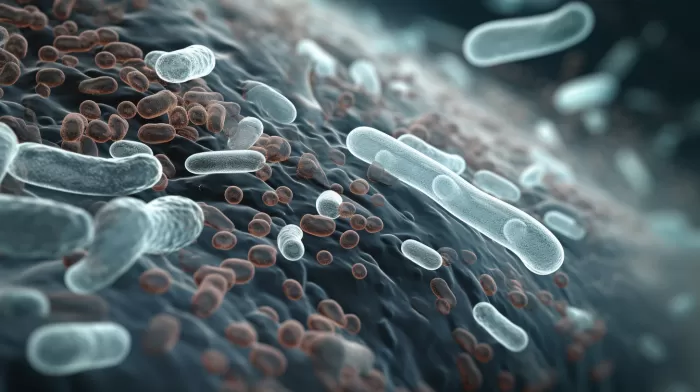The battle against antibiotic-resistant bacteria is a pressing concern in the medical world. With bacteria becoming increasingly immune to traditional antibiotics, researchers have been exploring alternatives to reduce the risk posed to our health. One such alternative is the use of a live bacteria known as Bdellovibrio. Researchers at the University of Nottingham have discovered that Bdellovibrio holds potential as a viable solution, as it was shown to reduce salmonella by 90 percent in poultry without causing side effects.
A Natural Predator
Bdellovibrio, predatory in nature, preys upon other harmful bacteria, thus helping to keep bacterial populations in check. The bacteria do not attack human cells, making them an attractive option for medical applications. By introducing Bdellovibrio to a bacterial infection, it’s possible to target and eliminate the harmful bacteria while leaving human tissue unharmed.
Turning to Nature for Solutions
When discussing the potential of using Bdellovibrio in medicine, Douglas Kell, chief executive of the Biotechnology and Biological Sciences Research Council, which funded the study, said, “Once we have understood the fundamental nature of an extraordinary organism such as Bdellovibrio, it makes sense that we should look at potential uses for it. The impact of bacterial infections on human and animal health is significant, and since antibiotic resistance is a major issue, alternatives from nature may become increasingly important.”
This approach showcases the importance of exploring the organisms existing in nature to find potential solutions to common issues faced in the medical field.
The “Living Antibiotic”
When Bdellovibrio was introduced to poultry, the birds appeared to grow well and maintain their health. Although Bdellovibrio does not live long in the poultry gut, the bacteria were still able to reduce the presence of salmonella significantly. These findings have led to interest in researching the proper dosage for the most effective use of this “living antibiotic.”
Using predatory bacteria, such as Bdellovibrio, to fight infections holds promise as a more sustainable and eco-friendly alternative to antibiotics. As our understanding of predatory bacteria’s benefits increases, there is hope that these microscopic predators can help combat the growing problem of antibiotic resistance.
Limitations and Challenges
While the potential for this natural alternative exists, further research is required to ensure its safety and effectiveness in humans. The biggest challenge lies in determining the correct dosage for Bdellovibrio to be effective without causing harm to the host.
Another concern is the danger of introducing a predator into the delicate balance of the human ecosystem. Although Bdellovibrio is not harmful to human cells, it’s crucial to consider the possibility of unintended consequences resulting from the introduction of these predatory bacteria into the human system.
Additionally, the bacteria must be studied to ensure they do not develop antibiotic resistance themselves. If Bdellovibrio were to become antibiotic-resistant and turn against the host, the results would be disastrous.
The Future of Predatory Bacteria in Medicine
Research into Bdellovibrio and other predatory bacteria is still in the early stages, but the potential for their use in medicine is promising. As scientists work on understanding these bacteria’s mechanisms and developing the most effective methods of application, the future of predatory bacteria in medicine could include a safer and more efficient way of combatting antibiotic-resistant infections.
Greater public awareness of the dangers of antibiotic overuse and misuse is also essential, as overreliance on antibiotics has contributed to the growth of resistant bacteria. Education on the responsible use of antibiotics can further assist in combating the resistance crisis. By combining responsible antibiotic use with the power of predatory bacteria, we may be able to address the growing challenge of antibiotic resistance, protecting our health and the health of future generations.
By studying and harnessing the power of predatory bacteria such as Bdellovibrio, we can work towards developing safer, more effective alternatives to traditional antibiotics—ultimately safeguarding the health and well-being of our global community.



